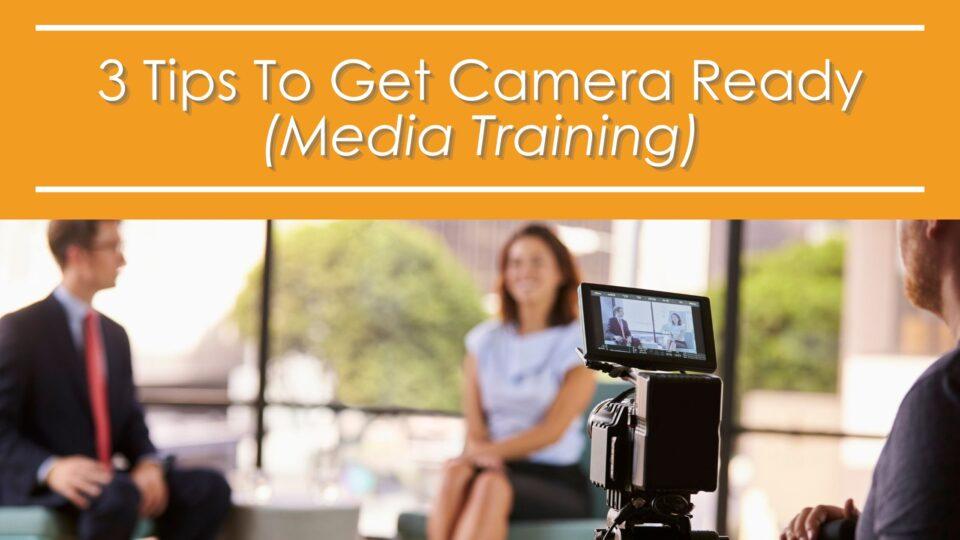The news is hungry, and they are always looking for the next best story. This could be good or bad for your brand. Either way, a good relationship with the local media and proper media training are critical to success. The news has taken many shapes over the years. With print publications, broadcast, television, blogs, podcasts, and social media, the news is everywhere and has to fill a 24-hour, 7-day-a-week cycle.
Here are three tips to help you get camera or interview ready for your next media sit-down:
- Do your research, and not just on the topic you are being interviewed on. It is a best practice when dealing with the media to know who is interviewing you. Take a few minutes to do an Internet search on the reporter or writer and what they cover. Where did they go to school? What stories interest them? Make sure you also spend some time researching the publication or station they work for. Having a good idea of the type of stories they publish will help determine the direction the interview will go in. Finally, read or watch some of the stories the reporter or writer has covered in the past. This can also help gauge their overall interest in your interview or standpoint on a topic. Gathering this information can help you build a relationship with the reporter, but also see red flags that could potentially be brought up. Bottom line – don’t go into the interview blind.
- Craft and practice your message. Before you accept the interview, decide what your company’s standpoint is on the interview topic. Once you do that, craft a message. How will you position yourself, your company, and that viewpoint? Help outline messages with talking points. This is a huge help when preparing for an interview. Create three to five main messages that you want the reporter to know and answer their questions with these messages. Don’t be afraid of saying the same thing in different ways. Remember, there is only so much time on TV and space in an article. Speak in soundbites or small sentences, and always remember that the reporter has the final say in what is aired or published. Only give them quotes that you’re okay with being public. Make sure to avoid industry jargon and always speak in layman’s terms.
- Be ready for anything. The most important thing about being interviewed is being prepared for the tough questions, even if they are off-topic. Reporters always have limited time, and if they have already scheduled an interview with you, they may take advantage of the time and ask you unrelated questions. This could throw you off, so be ready with recent relevant news, industry updates, and your company’s happenings. Don’t be afraid to say, “I don’t have an answer for that.” That is far better than speaking about something you don’t have expertise or authority in. You should never speculate. Instead, offer other resources if you have them (i.e., I recommend you speak with X about that). The reporter will appreciate the extra help in crafting their story.
Media training is highly recommended. Every company should have its spokesperson and leadership trained on how to properly interview with the media. From how to answer questions to how to dress, speak in soundbites, and more, we are happy to help. Reach out to us!
This article may not be copied, reproduced, or distributed without Pushing the Envelope’s prior written consent. All information is as of the date above unless otherwise disclosed. The information is provided for informational purposes only and should not be considered a recommendation to purchase any product or service presented or provided by Pushing the Envelope. The information does not represent legal advice; recipients should consult their respective advisors regarding such matters. This material may not be suitable for all businesses. Neither Pushing the Envelope nor any affiliates make any representation or warranty as to the accuracy or merit of this information for individual use. Information contained herein has been obtained from sources believed to be reliable but are not guaranteed.

